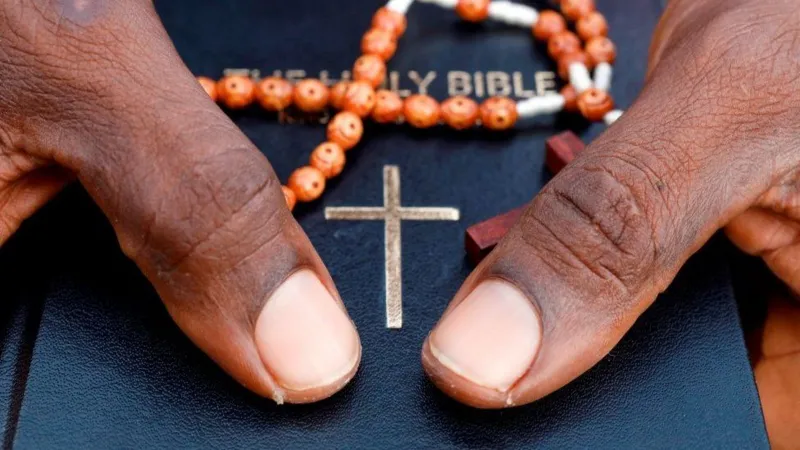A call for all staff in Nigeria’s ministry of agriculture to pray to help the country achieve food security has caused controversy.
An internal memo from the head of the ministry’s HR department urges staff to attend a solemn prayer session and fast for the next three Mondays.
Some Nigerians have responded by questioning the government’s commitment to the task of bringing down the high cost of food.
A press release from the agriculture ministry on Saturday downplayed the issue, saying the call for prayers was not an official policy to tackle food insecurity but was intended to boost staff wellbeing.
“Just as the already existing monthly aerobic exercise and establishment of the gymnasium in the ministry are for physical fitness”, it continued, and “as the regular medical check-ups of staff are for their health”.
At least 4.4 million people in Nigeria do not have enough food, according to UN estimates, with the country experiencing its worst economic crisis in a generation following policy changes brought in by the new government since 2023.
The ever-increasing price of basic food staples was one of the triggers for nationwide cost-of-living protests last year. Yams, for example, quadrupled in price from one year to the next.
Critics see the appeal for divine intervention as proof that the government is shirking its responsibility to citizens and taking a fatalistic attitude.
But officials say they have taken numerous steps to tackle the crisis, including giving farmers more than 1,000 tractors and over two million bags of fertiliser.
Exasperated reaction to the call to prayer online has ranged from people saying the ministry’s leadership should be replaced with pastors and imams, to simply saying “Nigeria is a joke”.(BBC)



